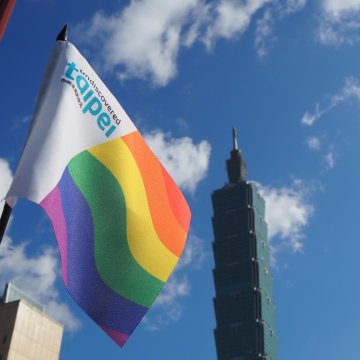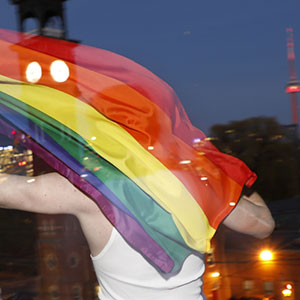- About
- Topics
- Story
- In-Depth
- Picks
- Opinion
- News
- Donate
- Signup for our newsletterOur Editors' Best Picks.Send
Read, Debate: Engage.
| topic: | LGBT Rights |
|---|---|
| located: | China, Taiwan |
| editor: | Amy Liu |
A rainy day at the end of October was turned into a joyful one as people sporting bright colours and rainbow flags populated the streets for Taiwan’s LGBTQ+ Pride Parade. The parade, whose theme this year was ‘An Unlimited Future,’ aiming to break down the walls of sexual and gender oppression, attracted an estimated 120,000 participants.
Taiwan made history in 2019 when it became the first Asian country to legalise same-sex marriage, following the Constitutional Court’s ruling that the existing marriage law was unconstitutional. "It took 20 years for Taiwan to hold one of the largest LGBT marches in East Asia," said the Taiwanese president Tsai Ying Wen. "It is now normal for Taiwanese to choose whom to marry."
However, the ruling has not granted full rights to LGBTQ+ individuals. Many social inequalities remain to be addressed, such as granting parental rights to non-blood related children, international marriages for same-sex couples and marriage rights for transgender individuals. Although one ruling by a district court this year was notable in being the first to grant a same-sex couple the right to adoption, it takes time for this right to become applicable in the rest of Taiwan. LGBTQ+ activists are also still waiting for Taiwan’s response to their demands of allowing trans individuals to legally change their genders without requiring surgical operations.
Nevertheless, social rights are much more advanced in Taiwan than in mainland China, where no joyful parades will be held. In 2020, ShanghaiPRIDE, which has been run by volunteers for the last 11 years, announced it would cancel all upcoming activities and stopped its scheduling of any future events, without explanation. “No matter what, we will always be proud – and you should be, too,” the organisation stated. According to the media, it is believed the decision was made "under mounting pressure from local authorities.”
Even though the Chinese government removed homosexuality from its list of mental illnesses in 2001, the majority of people try to avoid speaking about it openly, while some hospitals have recently turned conversion-clinics into a business, claiming that medications can cure homosexuality. Meanwhile, the Chinese government continues to crackdown on LGBTQ+ friendly media, banning male artists and characters with feminine characteristics, or censoring scenes mentioning gay topics from foreign television series.
With these harsh social constraints, it is difficult to predict when LGBTQ+ equality will be achieved in these countries; however, with shared values in mind, we can individually show support to those in need. Using other countries’ policies of equality as inspiration, international institutions should play a role in persuading Asian countries to take action in support of LGBTQ+ equality. Changes take time, but the effort is worthwhile.
Photo by Shaine Tsou

